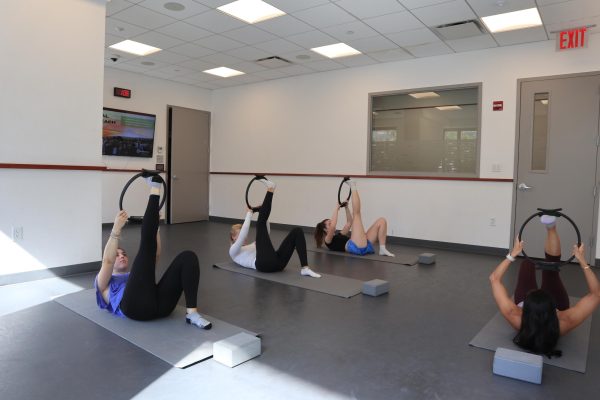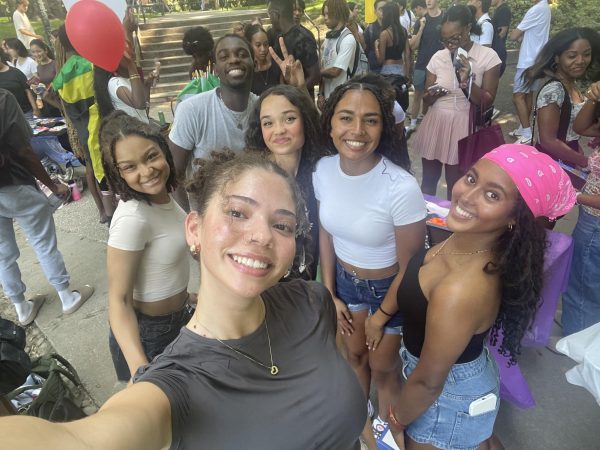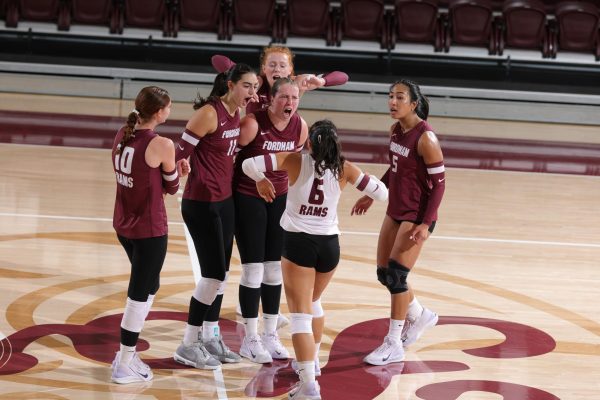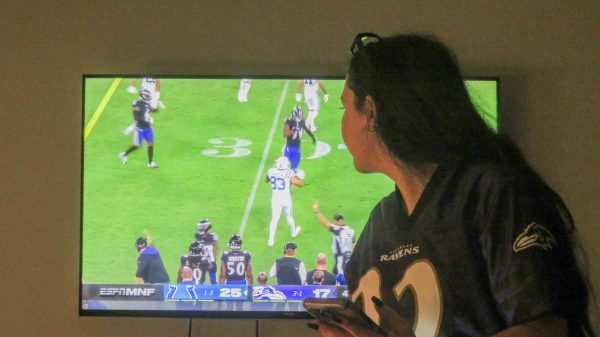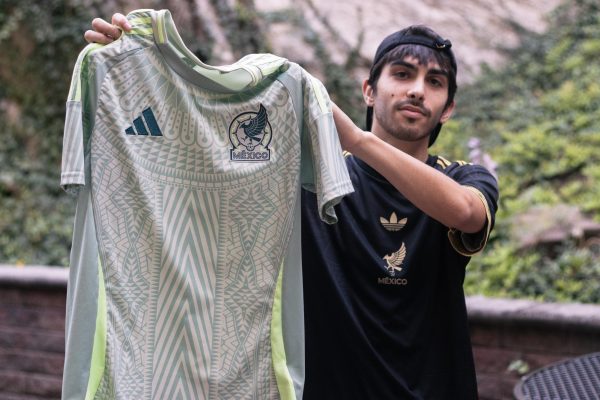Students Share the Perks of Pets During the Pandemic
It’s a conversation often heard on the Plaza and in the dorms: students regaling their (human) friends with stories of their furry friends back home, sometimes accompanied by a photo — or 20 — of the pets they miss.
Since higher education institutions have shuttered and transitioned to online learning to slow the spread of the coronavirus pandemic, millions of students have unexpectedly gotten a lot more time at home with their pets — and as city and state governments worldwide have enforced restrictions on travel and in-person contact, pets have become some people’s primary source of companionship and comfort.
“I think my dog is actually keeping me sane,” said Jordan Wappler, Fordham College at Rose Hill ’22. “She is always up to play and truly has a kind heart.”
Wappler lives in Seattle, Washington, one of the first locations of the coronavirus outbreak in the United States. As such, Wappler’s community had been on extra high alert, and people were encouraged early to social distance to an exceptionally high degree. Gov. Jay Inslee issued a stay-at-home order on March 23, which has now become the norm across the country.
“I have only been in physical contact or proximity with my dog, sister and dad,” Wappler said. “I am a big extrovert, so being with people is what fuels me emotionally.” For the time being, she has taken to regularly hiking with her dog, Lisbon, which she had never done before — she previously undertook the activity with friends.
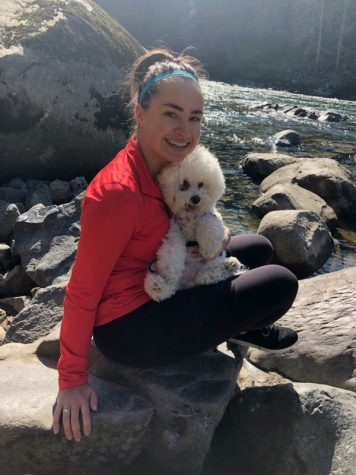
Jordan Wappler, FCRH ’22, has begun taking regular hikes with her dog, Lisbon, since quarantine began.
This kind of routine has benefits, according to Jeffrey Ng, director of counseling and psychological services at Fordham. He said the responsibilities of pet ownership, including regular walks and a consistent sleep schedule, promote physical health even prior to the pandemic.
During social distancing, people can become more attuned to both the physical and emotional benefits of time with their pets in the face of loneliness and uncertainty, even if they don’t normally experience these feelings.
“Pets can provide their owners with unconditional love/attention and physical affection, which positively influence mental health and well-being,” Ng said. “Spending time with pets can also promote experiences of ‘being in the moment,’ which is a protective factor for depression and anxiety.”
Ng’s analysis is supported by multiple studies that suggest the benefits of pet ownership. BMC Psychiatry’s 2018 review of 17 studies on the topic found that 15 reported some positive effects of pet ownership on subjects with existing mental health conditions.
The review’s summary of these studies said, “Pets were able to provide unique emotional support as a result of their ability to respond to their owners in an intuitive way, especially in times of crisis and periods of active symptoms.” It continued to say that pets provide physical companionship and opportunities for communication, which can reduce loneliness.
Although there is anecdotal evidence for the benefits of pets, some studies have concluded that the health of pet owners can potentially be worse, or else on par with, that of non-pet owners. Nine of the studies cited in the BMC review returned some negative effects, including the sadness that comes with losing a pet.
Some studies in a 2011 report of multiple international studies on the topic suggested that pet owners were at a higher risk for a range of physical and mental health issues. A comparable amount of studies cited in the report found no discoverable difference in the emotional health of pet owners and non-pet owners. One, an American study by the Pew Research Center, found “no differences in the proportion of pet owners and nonowners who described themselves as ‘very happy.’”
Though empirical data on “the pet effect” is inconclusive, students are nonetheless finding their pets a positive resource, especially in the time of the pandemic.
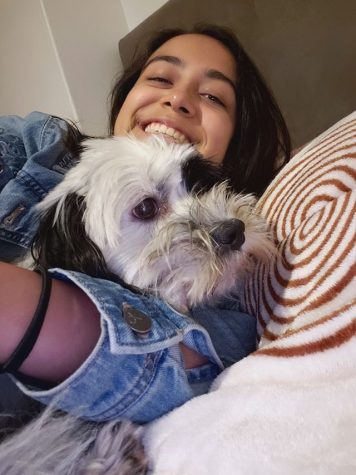
Ana Paula Camacho Pérez said she and her dog, Laika, have become a mutual source of support for each other.
Ana Paula Camacho Pérez, formerly Fordham College at Lincoln Center (FCLC) ’23, has experienced this firsthand. The Mexico City native said her dog, Laika, has helped her through “moments of anxiety” toward both the government’s and her family’s handling of the pandemic.
The amount of cases in Mexico is low compared to countries like the U.S. — 27,634 as of May 6, according to data from Mexico’s Health Secretary — but has been continually rising since March, and Mexican president Andrés Manuel López Obrador was initially slow to cancel large gatherings and impose tight travel restrictions.
On a smaller scale, Camacho Pérez said her family has also continued to go out for both work and pleasure, including her grandmother with preexisting health conditions. Camacho Pérez has sought refuge on her back patio, sitting with Laika and taking in the sun when she feels helpless to do anything else.
“I couldn’t vent out or go see (my grandmother) to stop her, so I think in those moments Laika really helped me calm down,” Camacho Pérez said. “I also think it’s been good for her as well, because she used to be a stray dog so getting more love from us has really helped her heal from what happened to her.”
Kamila Vahidi, FCLC ’23, has had a similar experience with her cat, Snowy: “My cat has been sleeping with me every night since I came home, which he never used to do. I am definitely more conscious of him now that I am home all the time.”
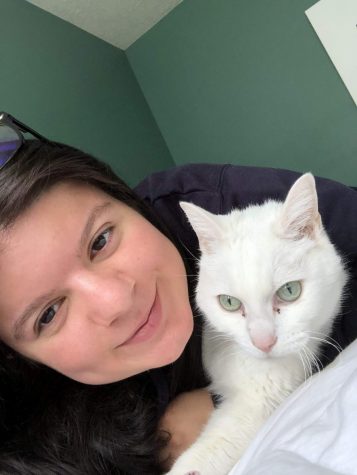
Kamila Vahidi, FCLC ’23, enjoys “snuggling with (her) cat to pass the time.”
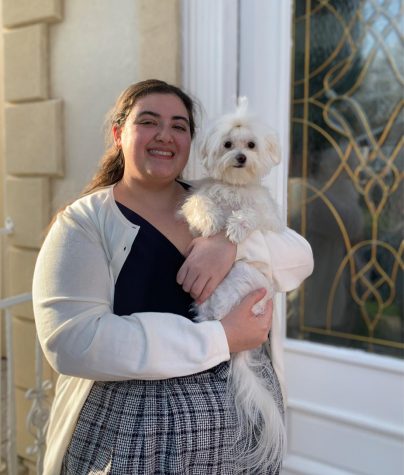
Isabella Frassetti, FCLC ’20, and Eloise have had regular FaceTime sessions with Frassetti’s friends and their dogs.
Increased companionship, as Camacho Pérez and Vahidi suggested, is a two-way street. However, it is temporary. Isabella Frassetti, FCLC ’20 — who said her main source of socialization has been weekly FaceTime sessions with her friends and all their dogs — worries about what effects this period of closeness will have on pets’ mental health. She said she has been careful to give her dog, Eloise, space from time to time.
“I’m not sure what’s going to happen when life goes back to normal,” Frassetti said. “A lot of dogs have anxiety so it’s a good thing that we let them have some alone time so they don’t develop a dependency and become nervous when we leave to go to work or school later on.”
In the meantime, pets are more involved in their owners’ lives now. Students can make the best of it by indulging in a longer-than-usual walk, spontaneous fetch session or in-person photoshoot — to have ample new material to show your friends when you’re back on campus, of course.
Meet More of the Fordham Community’s Pets:
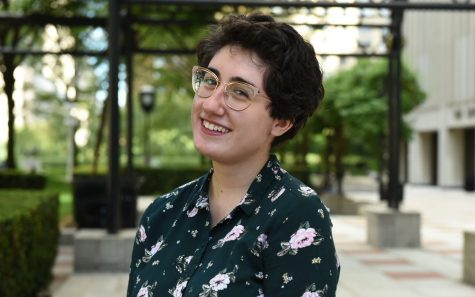
Gillian “Gil” Russo, FCLC ’21, is one of The Observer’s virtual vanguards — er, online editors. Previously, she worked as the arts & culture editor and one of the inaugural newsletter editors. Gil is a journalism major/theatre minor who had hoped to write just one Broadway show review before graduation, and although that didn’t happen, she did achieve her new goal to do at least one thing for all 15 divisions of The Observer by then. Other fun facts include that she enjoys dancing and sword-fighting, she can say the alphabet backwards, and she modeled for a French chair catalog one time. gillianrusso.com
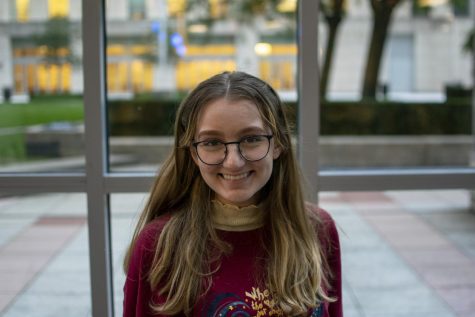
Courtney Brogle, Fordham College at Lincoln Center ’20, is the managing editor emerita for The Observer. She is a film and television major (TV concentration) and a journalism minor. A staff writer since freshman year, she has written for the news, arts & culture and features teams and most recently worked as the online editor.
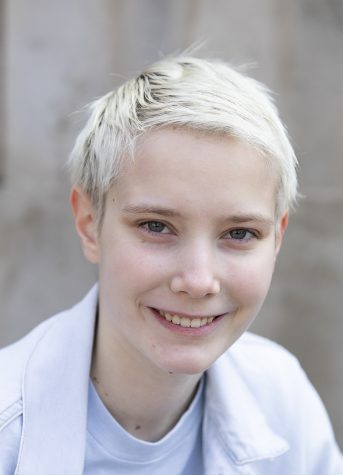
Polina Uzornikova, FCLC ’23 — as an opinions editor, she loves writing (and editing) satire of all kinds. Her hobbies include writing and directing, and bleaching her hair every other month.
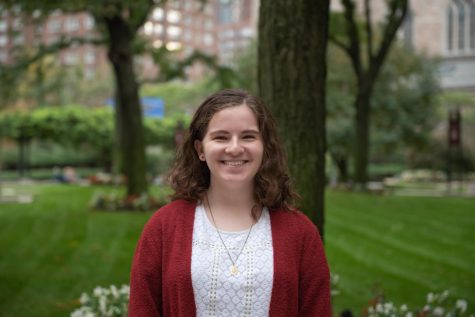
Jill Rice, FCLC ’22, is an online editor for The Observer. She is a classical languages and comparative literature double major, so please direct any ancient language-related questions to her. She enjoys figure skating and reading, but not necessarily at the same time. She was previously a head copy editor.
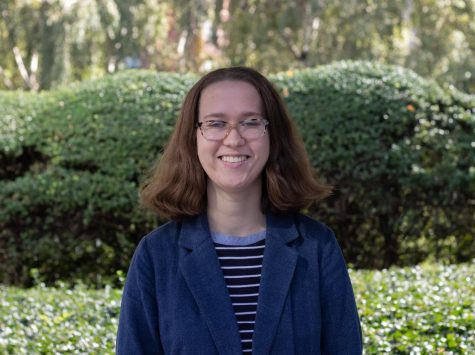
Grace Getman, FCLC ’22, is the managing editor for The Observer. A dual urban studies and environmental studies major, she likes trees, buildings and trees on the top of buildings (jury’s out on buildings on top of trees). Previously, she worked as an editor in the Social Media and Opinions sections.
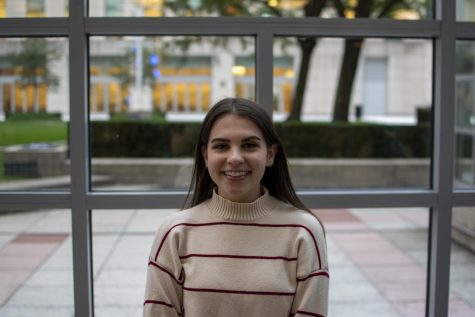
Lena Weidenbruch, Fordham College at Lincoln Center ’20, is a sports & health editor emerita for The Observer. She is studying journalism and in the future hopes to have a career which combines that with her love for athletics.
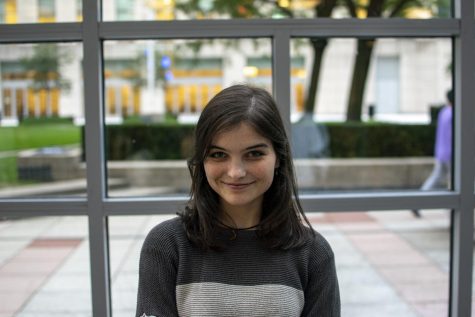
Lara Foley, Fordham College at Lincoln Center ’22, currently serves as a layout editor. She studies new media and digital design and loves to doodle. She adores working alongside her fellow layout editors and conquering the labyrinth that is InDesign! She has two cats and a doggo back home in Los Angeles.

Kristen Skinner, Fordham College at Lincoln Center ’22, is a staff writer for The Observer and has been writing for the paper since her freshman year. She is a psychology major with a minor in visual arts and a concentration in American Catholic Studies. Upon graduation, she hopes to be a part of the 5 Year Education Program at Fordham, studying Early Childhood Education. Outside of school, Kristen can be found doing yoga, dancing, or exploring the city. She is a traditional New Yorker raised in upstate NY, who loves the snow and drinking lots of coffee.
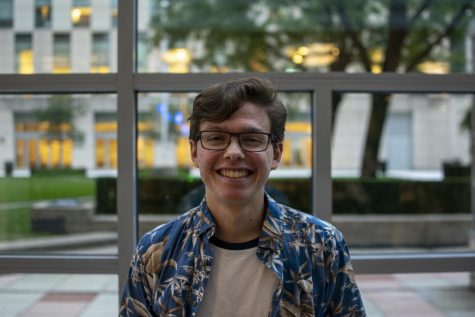
Owen, Fordham College at Lincoln Center ’21, is editor-in-chief emeritus of The Fordham Observer. He has written for The Observer since September 2017. Serving as assistant opinions editor from January to April 2018, he assumed full editorial duties for the section until April 2019. After serving as editor-in-chief for a year, he now heads up The Observer's advertising team.


